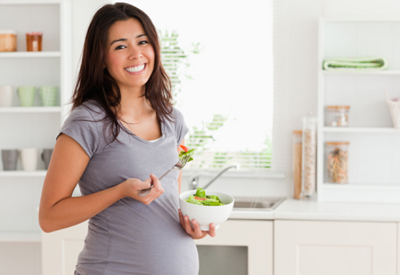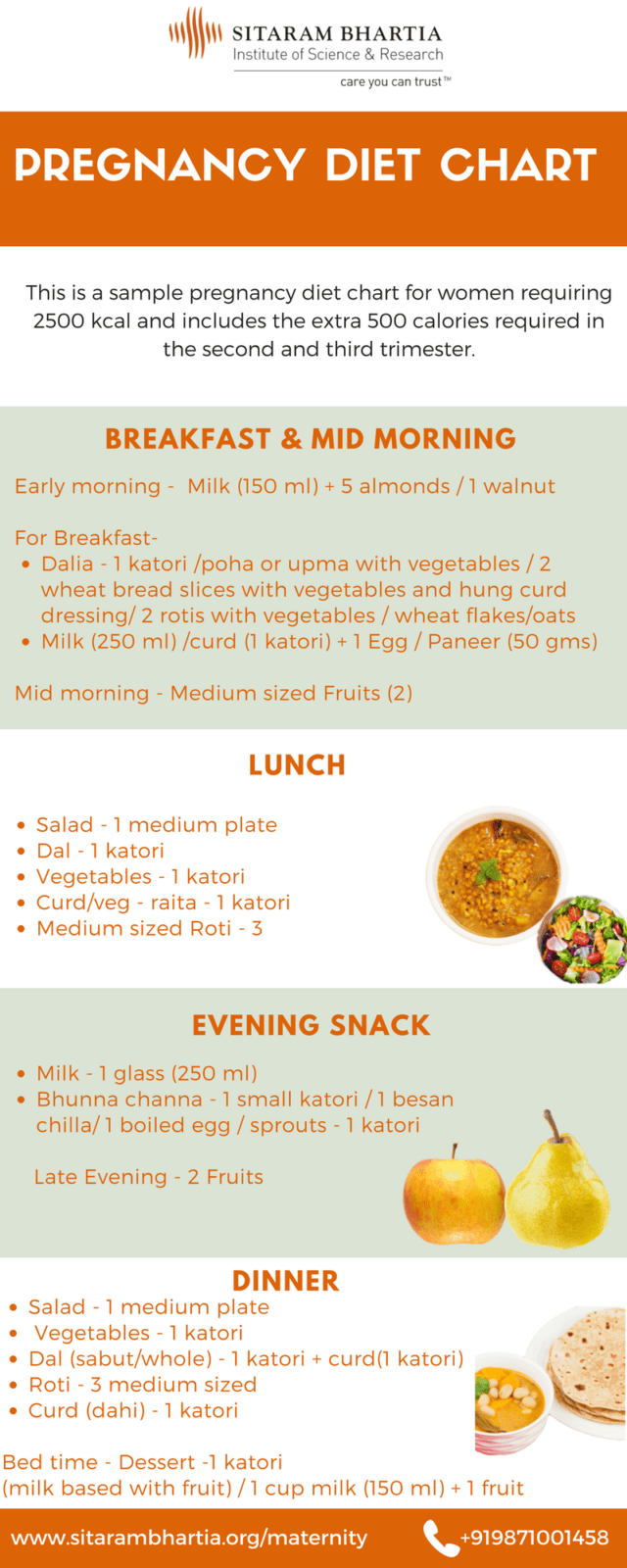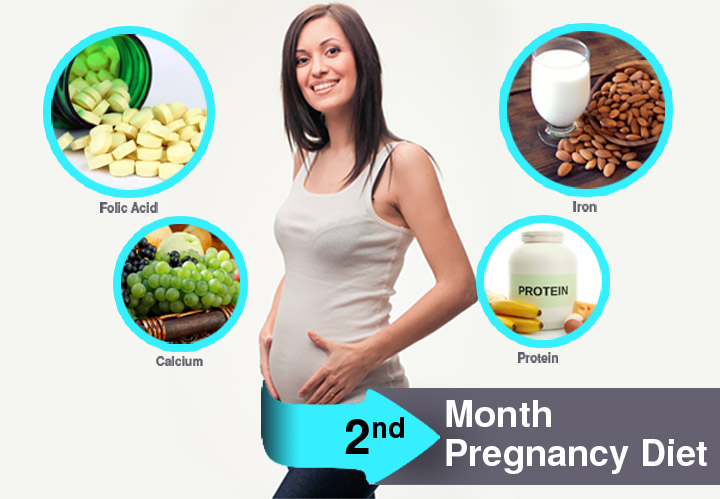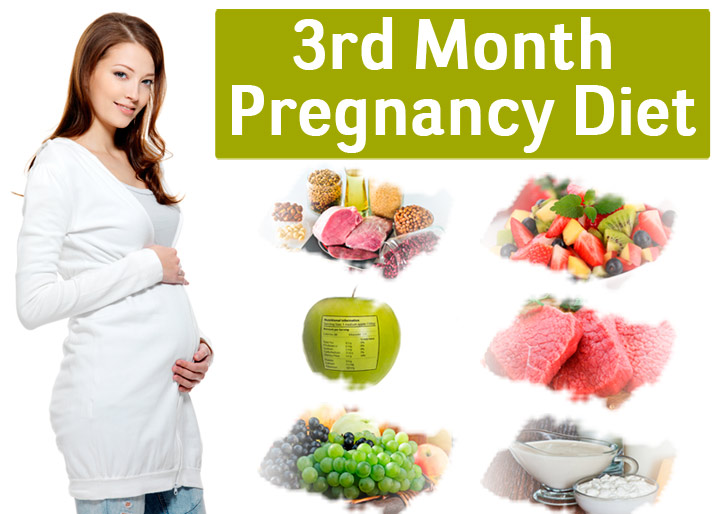The Pregnancy Diet

Contents:
- What’s the Point
- How the Diet Works
- How to Switch to Diet
- What to Focus On
- What You Should Avoid
- How Many Times a Day You Should Eat
The Best Pregnancy Diet
Why pregnant women crave salty or spiced food in first weeks of pregnancy and why their appetite abruptly increases on a sixth week? The pregnancy diet will tell you how you should eat in every trimester of pregnancy, while the baby is growing.
What’s the Point
From the moment you conceive, a certain program starts: the body of a new person develops consecutively, with stunning accuracy. For example, the nervous system begins to form on the 18th day, the heart – from 25th to 35th day, heads and feet – from 23rd to 8th day. The mother’s body has to have all necessary elements at necessary moments – that’s why it is so important to eat properly during pregnancy.
“Some time ago people used to think that the baby is able to take all it needs from mother’s body by itself”, tells Elena Ostrovskaya, an obstetrician-gynecologist of the highest category and Associate Professor of the Department of Obstetrics, Gynecology and Perinatology in Saint Petersburg State Medical Academy. “But now we know that if woman eats inadequately, her body turns on a powerful self-preservation mechanism, which can hurt the fetus. That is why it’s so important to build a pregnancy diet properly”.
How the Diet Works

Basic organs and systems (such as brain, spine, heart and blood circulation) begin to form in the first trimester. That’s why it is important to focus on proteins in this period. Woman has to receive not less than 1,5 g of protein per 1 kg of a body weight per day.
If you crave spicy and salty food (herring, caviar, sauerkraut, pickles), you can eat them. Elena Ostrovskaya explains that this craving appears because of inadequate secretion of a gastric juice during the new hormonal regime. She also tells that non-standard food preferences usually disappear on a third or fourth month of pregnancy.
It is important to avoid lack of folic acid, zinc, copper and selenium: these substances lower the risk of birth defects. C and B vitamins help to reduce morning sickness and iodine and cobalt help to maintain good health and take part in the formation of baby’s thyroid.
The appetite usually increases in the second trimester: the baby and the placenta grow and require more nutrients. The amount of proteins has to be increased to 2 g per 1 kg of body weight at this time. Woman also needs more vitamins and minerals (most of all – iron, vitamin B12 and folic acid), but they are absorbed better too.
While the baby grows, the woman gains weight. Healthy weight gain is about 1-1,5 kg per month. But be sure to monitor your weight: even if you are pregnant, it doesn’t mean that you have to eat for two. The caloric intake shouldn’t exceed 1800 kcal in the first trimester, 2000-2200 kcal in the second trimester and 2200-2400 kcal in the third trimester. If you notice that you’ve become overweight during pregnancy (your body mass index is more than 25), reduce the amount of fat in your nutrition to 50-60 g per day.
Calcium, phosphorus, A and D vitamins are required for formation of bones, skin, mucous and retina. Chromium, zinc and B vitamins help to control weight and reduce the risk of diabetes among pregnant women.
Fat depots form in both mother’s and growing fetus’s bodies during the third trimester. Fat depots are bunches of nutrients that are necessary during childbirth and after it for lactation. It’s good to eat more carbs during this period: they help to restock glycogen in the liver, muscles, placenta and uterine musculature.
How to Switch to Diet

There are four most common problems women experience in the beginning of the pregnancy: morning sickness, constipations, intestinal disorders and heartburn. To handle heartburn and morning sickness you should eat often in small portions, drink less tea and coffee and more clean water (6-8 glasses a day). If you suffer from constipations, eat more vegetable and fruit salads and if you suffer from diarrhea, add fiber-rich wholegrain bread, bananas, porridge, rice, bran and oatmeal to your daily diet.
Eat at least 3-4 servings of calcium-rich products (milk, cottage cheese, hard cheese, green leafy vegetables) and iron-rich products (seafood, turkey, spinach, berries, brussels sprouts, buckwheat and dried fruits) every day. Also, eat a product rich with folic acid (beans, lentils, green leafy vegetables and beef) and vitamin C (citrus fruits, strawberries, papaya, broccoli, cauliflower, tomatoes, peppers and kiwi) at least once a day.
During the entire pregnancy try to eat protein-rich food and fat-rich food (better if fat is unsaturated) in the morning and in the afternoon. Leave digestible food (dairy, vegetables and cereals) for the afternoon and the evening. It doesn’t overload the digestive tract and doesn’t stimulate the nervous system.
Do not combine dense and liquid food: it’s not recommended to eat them both at one serving. You should drink between servings and it’s enough to drink 1,5 l of various liquid (including milk, soups and fruit drinks) per day.
Stick to milk-vegetable diet in the second half of the pregnancy. You should eat meat and fish too, but no more than 4-5 times a week. Try to boil or bake meet and fish, combine them with vegetables and herbs. It is good to eat raw fruits, berries and vegetables too.
Future mom’s kidneys and liver experience more stress in the last months of pregnancy. That’s why it is better to choose light vegetarian soups and salads instead of rich broths, grilled meat and hot spices.
Try to reduce the amount of caffeine to 300 mg per day: it violates the blood circulation and prevents the absorption of vitamins and minerals. There are 150 mg of caffeine in 200 ml coffee cup, approximately 80 mg of caffeine in a cup of black tea and approximately 25 mg of caffeine in a chocolate bar.
What to Focus On
Eat vegetables, fruits, berries, meat, liver, fish, poultry, eggs, milk, yogurt, kefir, low-fat cottage cheese, mild cheese, wholemeal cereals and bread, butter, olive oil, flaxseed oil.
What You Should Avoid

Avoid sugar, sweets and white bread – these products violate the metabolism, can cause allergies and be the reason of woman’s and newborn’s overweight. Also avoid meats, sausages, smoked meat and canned fish – they are the main source of nitrites. The alcohol is strictly prohibited.
How Many Times a Day You Should Eat
Eat often in small portions: 5-6 times a day with 2-3 hour intervals. On the early stages of pregnancy morning sickness will bother you less if you stick to this regime and on the second half of pregnancy this regime will help you not to overload your digestive tract.